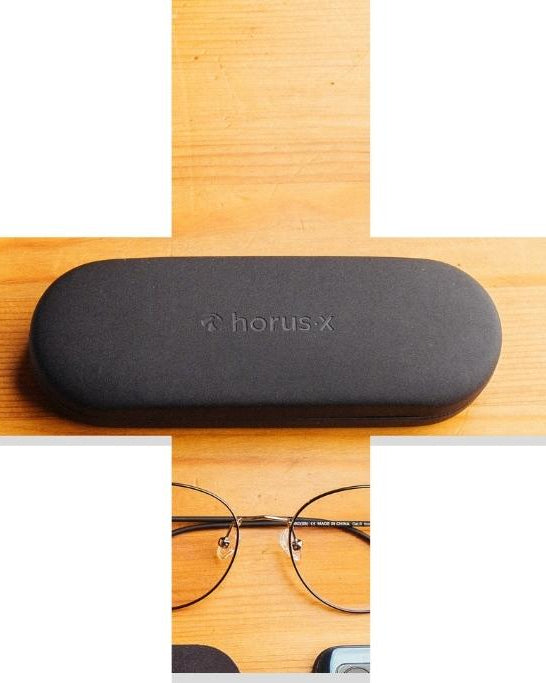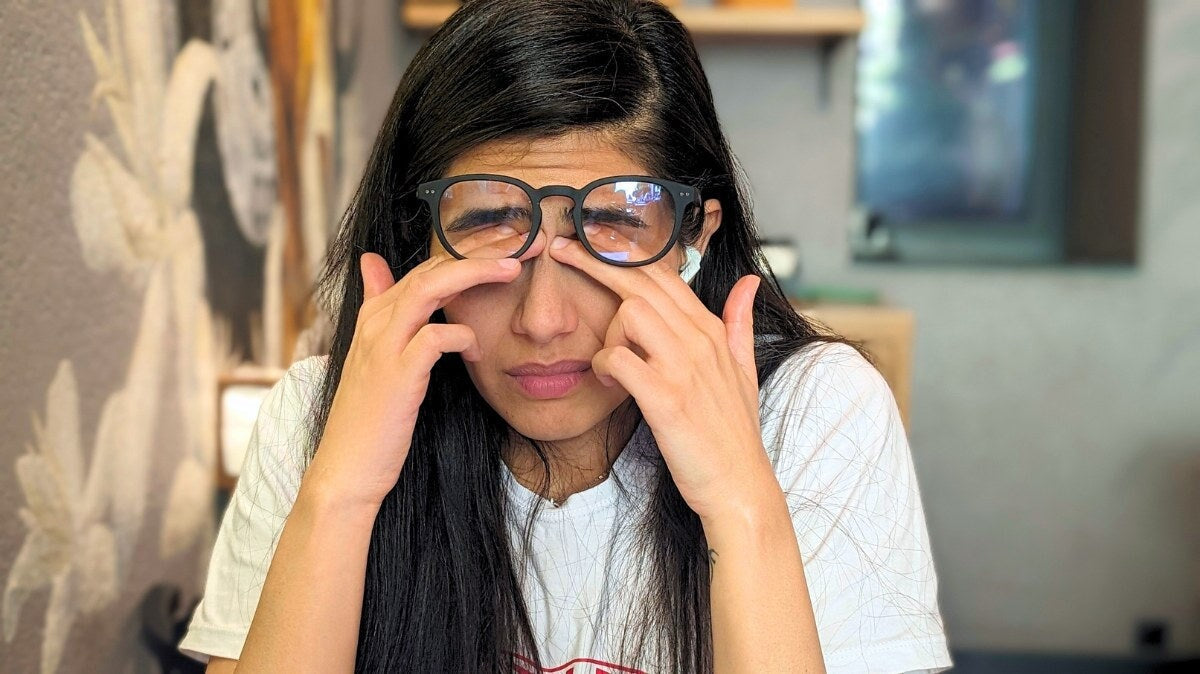A frequent question posed to ophthalmologists is “Why do my eyes sting?”
The eyes are sensitive and require care. The mark of a happy eyeball is one you forget is sat in your skull. But we’ve all encountered those moments where your eyes sting or even stream uncontrollably so you look like you’ve been sat in the corner, crying over an ex.
But what actually causes your eyes to sting?
First step: consult an ophthalmologist, fast!
Every itch you feel, every tear you make, the eye doctor isn’t watching you. Instead, you need to go to them.
Itchy, sore or bloodshot eyes are often something that pass by themselves, and aren’t necessarily a cause for concern. But identifying the issue, and what it is exactly that makes your eyes sting, is useful to know in the rare cases there’s a bigger problem afoot.
That’s why we’re here to help with this trusty guide, approved by The Police (just kidding).
Let’s take a look at the fairly broad pathologies relating to itchy eyes. If it’s something you experience frequently, we strongly recommend consulting your doctor and eye specialist. In particular if your eyes sting for longer periods of time, on a regular basis, or your eyes sting suddenly and intensively for no apparent reason.
In those cases, it’s essential to visit a specialist who will be able to run the necessary tests to identify if there are any issues.

Diagnosis: Why do my eyes sting sometimes?
First, we need to understand precisely what is meant by “stinging” in this context. Itchy or burning eyes can refer to several symptoms, as it’s hard to define exactly what that means. Are they:
- 🪡stinging?
- 😵itchy?
- 🔥burning?
- 👁️Are you sure it’s your eyes, not your eyelids?
If you can define which symptom it is based on one of these, it might help narrow down the cause, and identify best treatment options for your sore eyes.
Possible causes (from most to least likely)
Debris/Dust
The most common cause of stinging eyes is a foreign body stuck in them. Although your eyes are pretty good at crying away the small bits of dust, larger bits of debris can remain stuck.
The easiest way to know if this is the cause of your hurt eyes is to ask someone else to take a look for you.
- Is there a stuck eyelash?
- A visible intruder?
- Is Sting standing too close to you?
If you think you have debris in your eye, you can always rinse them with plenty of water, or even better with saline. Or just cry a whole bunch of artificial tears.
The most important thing is to avoid rubbing your eyes, as this could cause far worse damage. If the pain continues, it’s important you go and see a specialist.
Eye Fatigue
Digital eye strain or fatigue is when you ask more of your eyes than they can handle. This could be any of the following:
- Too much bright light
- Excessive exposure to reflections
- Unsuitable glasses or contact lenses
- Too much screen time (leading to digital eye strain)
If you played Star Wars: Jedi Survivor over and over for hours, trying to eke out every last bit of information, then we might be talking about you.
There are other symptoms that can also cause digital fatigue, or computer vision syndrome, but the most common reason is in the name – spending too much time on the computer!
There are preventative methods you can use to help this, such as wearing glasses specifically designed to block bad blue light from TV screens, and reduce fatigue.
- If you’re a gamer, check out these blue light blocking glasses.
- If you’re a more casual viewer, these stylish blue light blocking frames will be better suited to your lifestyle.
Dry eye
Tears alone are not enough to properly hydrate your eyes, no matter how many SOS’ you’re sending out to the world.
You have dry eyes either because you don’t produce enough tears, or because they are of “poor quality”. Which is what everyone wants to hear when they’re crying.
A lot of environmental and non-environmental factors can explain dry eye syndrome and lead to eye pain. They can be cause by anything from your age, medication, or contact lens, to your air conditioning or toxins in the surrounding area.

If it’s temporary, some eye drops and a slap on the buttocks will set you right. If it’s recurring, however, (also known as chronic dryness), you’ll have to do some investigation to find a long-term solution. We go into this in more detail later on.
Allergies
Unfortunately, one of the most common causes of your eyes stinging could be an eye allergy like hay fever. A seasonal allergy that causes allergic conjunctivitis, and everyone in your vicinity to stare sympathetically.
You might also be allergic to animal hair, or various dusts, spores and molds. In other words, you’d be really screwed in The Last of Us.
Identifying allergies requires specific tests usually carried out by your doctor or with an allergist. Unfortunately, of course, this costs money, so you may have to just pick the allergy you think is most likely and hope for the best. Don’t you just love our healthcare system?
Eye infections
As with the rest of your body, certain micro-organisms can break through your defenses and attack your eye faster than 13-year-old boys on COD.
Infections can be caused by fungi, bacteria or viruses and may be displayed through symptoms like pink eye (literally) and diminished vision.
Here are the top 5 most common infections you could suffer:
- Conjunctivitis: The most common eye infection
- Keratitis: An infection that reaches the cornea, if your eyes are particularly sensitive to light you could have Keratitis.
- Blepharitis: A common eye condition that makes your eyelids red, swollen, itchy and irritated. It can also cause crusty dandruff-like scales to appear on your eyelashes.
- Stye: An infection at the root of your eyelash. It can be really tiny, and really unpleasant.
- Chalazion: No, it’s not Charizard’s new evolution. Instead, it’s an infection that looks a bit like a stye, but is caused by engorgement of the Meibomian gland.
But wait… there’s more! In fact, there’s a whole range of other possible infections that could cause eye irritation and stinging. That’s why we recommend seeing a specialist. They can include:
- Scleritis
- Episcleritis
- Uveitis
- Hyalite
- Retinitis
- Choroiditis
- Vasculitis
- Optic neuritis
Finally, is it necessary to be able to identify which microorganism it is causing your eyes to sting? Identifying whether it’s a virus, bacterium or fungus at the root can lead to more extensive testing.
Treatments for eye issues of course vary depending on the location of the problem and the exact infection you’re suffering from. Some will heal on their own, like viral conjunctivitis; whereas others will need more help, and probably some eye drops. For the more serious infections you may even need antibiotics or in rare cases, injections.
Sunburn: Photo Keratitis
Believe it or not, you can actually get sunburned eyes! Looks like they’ll be seeing red whether Roxanne is around or not.
With UV exposure, your corneas take a hit that in some serious cases can result in the outer layer being totally destroyed, also known as photo keratitis.
If you do a lot of mountain hiking or skiing, you are at higher risk of exposure to this. And if you’re someone who experiences this problem regularly then you risk serious long term eye damage, like chronic dryness or age-related macular degeneration (AMD).

Don’t forget to include some UV and blue light blocking sunglasses as part of your snow outfit to dramatically help your long-term eye health.
If you think you’ve sunburned your eyes, the most important thing to do is avoid the sun as much as physically possible, staying inside until your symptoms subside. Remember, overexposure to UVs is particularly harmful in the long term, drastically accelerating AMD.
Treatment: How to soothe stinging or itchy eyes
It’s hard to give general advice here as everything depends on the exact problem you’re facing.
To relieve stinging eyes suffering from overexposure to screens we recommend reducing ambient lighting and slipping on a pair of amber lensed Revolution gaming glasses, which will filter the most aggressive light.
Total darkness can obviously provide the most relief, but unless you’re nocturnal that’s extremely difficult to come by.
Warm moist compresses can also help to soothe the retina. They release eye tension and can sometimes even help your eyes recover faster. What better excuse for a spa trip than that?
Prevention: how to preserve your eye health
This cannot be understated. You need to take care of your eyes by promoting a healthy lifestyle.
Here’s our ultimate checklist of small changes you can make in everyday life that will exponentially improve eye health and protect them long term. They’re simple changes, but ones you have to get used to. If you manage to nail all of them, you’re already doing better than 90% of the population!
- 🍲 Eat and drink well: Incorporate more superfoods into your daily life. Eat a balanced diet and make sure you’re properly hydrated by drinking plenty of water.
- 💤Get plenty of rest: The average person should get between 7-9 hours of sleep a night. Sleep is the cornerstone of good eye, and other, health.
- 🏃♀️Exercise: Exercising reduces intraocular pressure, its good for your body and your eyes! So, get off the computer for once.
- 💦No rubbing: Rubbing excessively at your eyes causes more harm than good. Eyes are self-cleaning! A little flick of your washcloth should be all your need.
- 🧰Arm yourself with essential tools: When you go out check you have the 4 S’s with you: sunglasses, screen glasses, safety glasses and saline.
- 📺Fewer screens: Turn the TV off for once.
- ⚠️Avoid: Alcohol, tobacco, fatty and sweet foods, and dangerous behaviors like sleeping with make up on, or contact lenses in. Good luck!
- 👩⚕️Follow-ups: The best eyes are those checked by a specialist, with eye exams every 12 to 18 months.

Why do my eyes sting? Final thoughts
It’s a lot of information to take in, but now you know what it means when your eyes sting and the necessary steps to take to improve your eye health and prevent further issues.
Once again, there’s no substitute for a specialist, but hopefully these tips have helped. Good luck with your eyes, and don’t forget to leave us a comment below!















